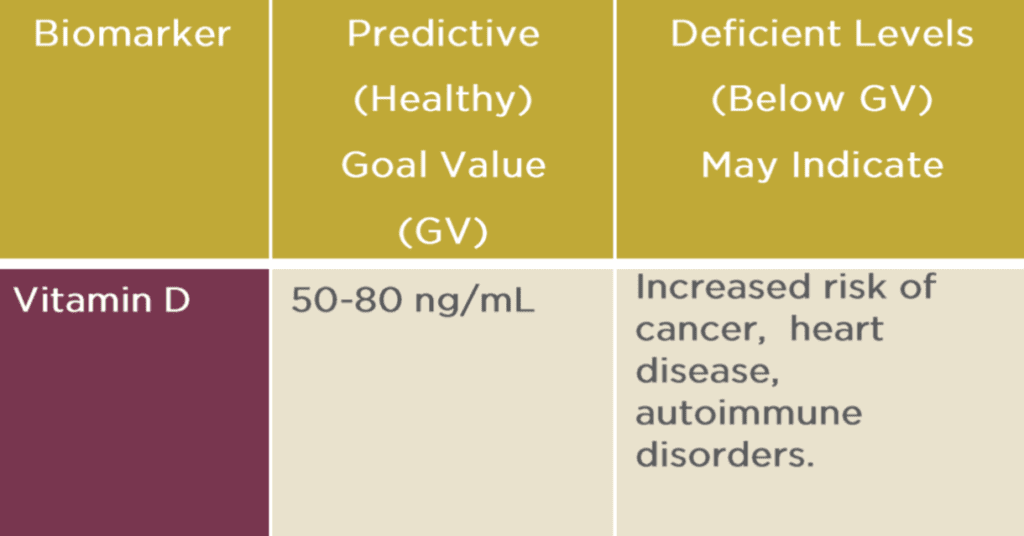The medical literature currently contains more than 50,000 articles on Vitamin D.
Vitamin D levels play a significant role in a number of systems in the body, including immune and neurological regulation, and bone health.
When levels of this nutrient are low, that increases the risk of cancer and heart disease, autoimmune disorders and psychiatric and mood problems.
In addition, according to the National Institutes of Health, Vitamin D may place a role in prevention and treatment of Type 1 and Type 2 Diabetes, hypertension, glucose intolerance, multiple sclerosis, and other medical conditions.

Vitamin D:
- Moderates cell division – Vitamin D is a hormone whose function is to provide vital communication links between cells, to normalize cell growth and prevent aggressive cell production.
- Prevents autoimmune disorders – Control mechanisms are built into the immune system that prevent immune activity from causing damage due to inflammation – Vitamin D is essential to the function of these control mechanisms.
- Reduces inflammation in the brain and nervous system – Vitamin D moderates inflammatory processes in the neurological system. This is particularly important, since the brain lacks the regulatory systems to moderate inflammation effectively.
Vitamin D levels are considered healthy when 50-80 ng/L6.
Most treatments involve more than a single approach. However, when Vitamin D is lacking, no other intervention will be 100% effective. Knowing Vitamin D status is essential to correct any depletion.

ELISA ACT BIOTECHNOLOGIES
109 Carpenter Drive. Suite 100
Sterling, VA 20164
800.553.5472
ClientServices@Elisaact.com